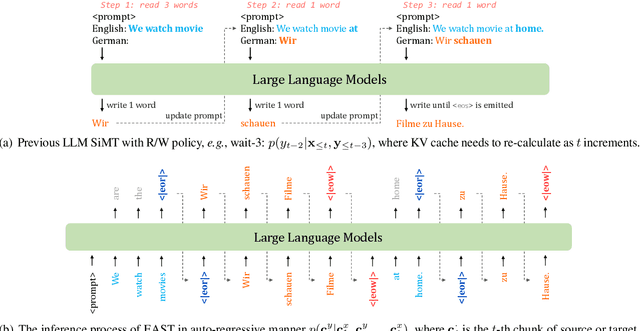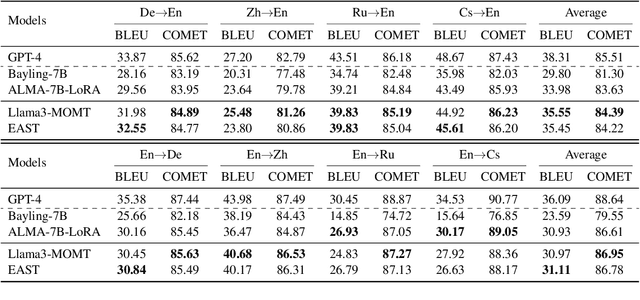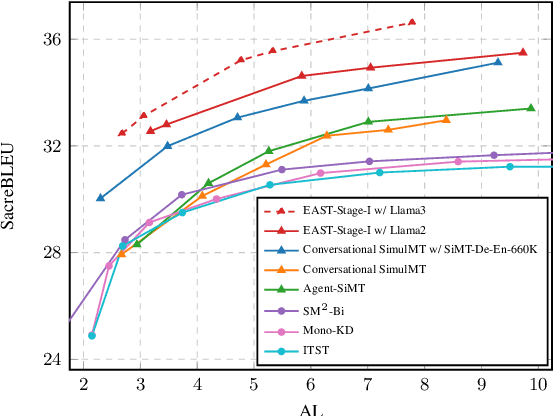LLMs Can Achieve High-quality Simultaneous Machine Translation as Efficiently as Offline
Paper and Code
Apr 13, 2025



When the complete source sentence is provided, Large Language Models (LLMs) perform excellently in offline machine translation even with a simple prompt "Translate the following sentence from [src lang] into [tgt lang]:". However, in many real scenarios, the source tokens arrive in a streaming manner and simultaneous machine translation (SiMT) is required, then the efficiency and performance of decoder-only LLMs are significantly limited by their auto-regressive nature. To enable LLMs to achieve high-quality SiMT as efficiently as offline translation, we propose a novel paradigm that includes constructing supervised fine-tuning (SFT) data for SiMT, along with new training and inference strategies. To replicate the token input/output stream in SiMT, the source and target tokens are rearranged into an interleaved sequence, separated by special tokens according to varying latency requirements. This enables powerful LLMs to learn read and write operations adaptively, based on varying latency prompts, while still maintaining efficient auto-regressive decoding. Experimental results show that, even with limited SFT data, our approach achieves state-of-the-art performance across various SiMT benchmarks, and preserves the original abilities of offline translation. Moreover, our approach generalizes well to document-level SiMT setting without requiring specific fine-tuning, even beyond the offline translation model.
 Add to Chrome
Add to Chrome Add to Firefox
Add to Firefox Add to Edge
Add to Edge